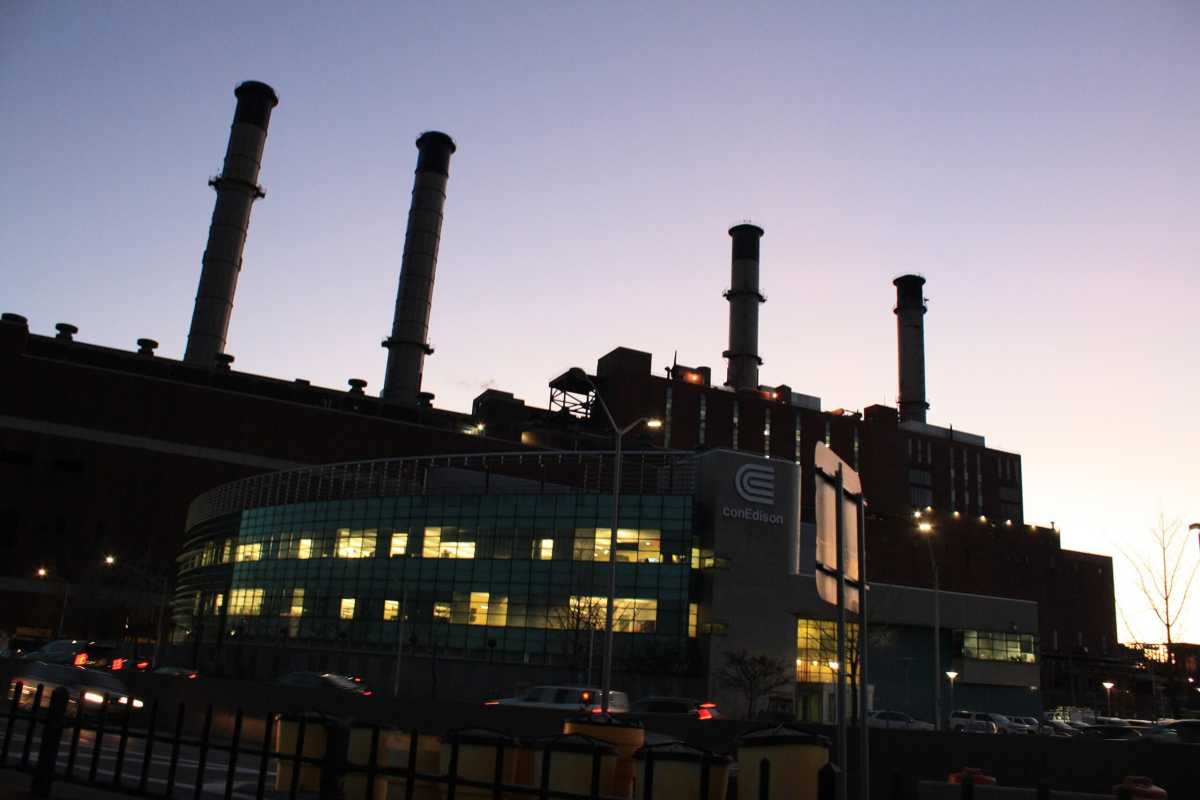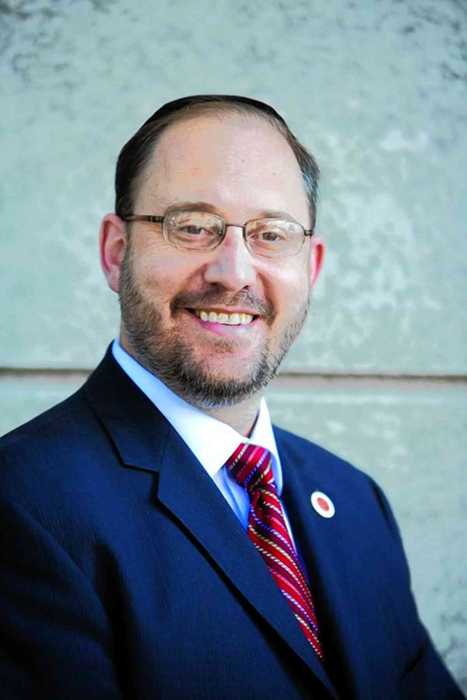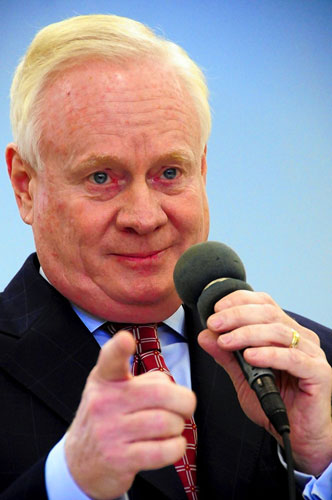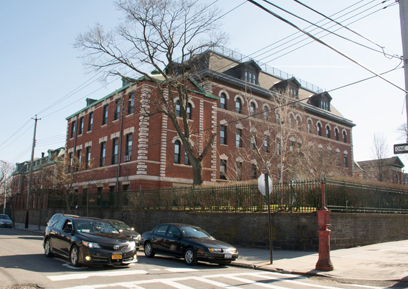Utility provider Con Edison has “real chutzpah” to request a rate hike that would increase their customers’ monthly bills, said state Senator Simcha Felder on Friday as he called on the state’s Public Service Commission to deny the utility’s request.
“Con Ed has real chutzpah asking for rate hikes on top of rate hikes, which we know are the direct result of their own poor planning,” Felder said in a statement. “Con Ed should not get one more penny. They treat the pockets of 4 million New Yorkers like their personal piggy bank!”
Con Edison — which provides electricity for more than 3 million customers in New York City and Westchester and gas for more than 1 million — is petitioning the PSC to increase the price of both services to “help fund investments to bring large-scale clean energy resources to our customers, reduce emissions, and facilitate increased electrification,” according to documents filed with the agency.
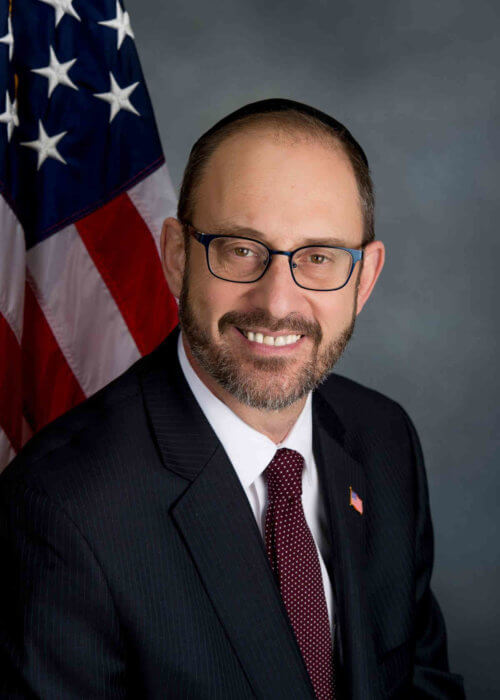
The utility company hopes to pay for those projects by recouping $1.03 billion from its electricity customers and $402.2 million from its gas customers — raising monthly bills by 9.7% and 14.5%, respectively. Con Ed initially planned to ask for more cash from its customers — raising bills by 11.2% and 18.2%, for electric and gas customers — but, over the course of the rate case, has lowered its revenue needs slightly, a spokesperson told Brooklyn Paper.
“New Yorkers are battling rising costs just to keep their families clothed and fed and must not be blindsided by crushing utility bills,” Felder said.
The senator and more than 50 of his colleagues in the state legislature last week penned a letter to the PSC and Governor Kathy Hochul asking them to consider the impact the rate case would have on New Yorkers and to hold a public hearing before making their final decision.
“The company’s proposal in the ongoing rate case will translate to an increase of more than $20.90 for electricity and $27.88 more for gas for the average customer — over $700 a year,” the letter reads. “For the median New York State household, the proposed increase translates to nearly a full percent of their income.”
The letter overstates the increase for a “typical” New York City customer, said Con Edison representative Allan Drury. Monthly bills would increase by $20.90 for an residential electric customer using 600 kilowatt hours each month – but most use 280 Kwh and would be charged less than $11 more per month. Similarly, the letter cites gas prices typical of gas heating customers — but most of Con Edison’s residential customers in New York City only use gas for cooking, and would see a monthly increase of less than $6.
Con Ed customers have been dealing with higher-than-normal bills since early this year as the cost of gas and electricity — and customer demand — rose. Some Brooklynites reported being billed hundreds of dollars more than usual, and prices stayed high through the summer.
In September, the utility warned that gas prices are still high, and its residential gas customers should steel for monthly bills of up to $460, with electric customers expected to be charged around $116 per month. The company offers assistance programs to help customers deal with pricey utilities, and Governor Kathy Hochul in June announced a new program that would help low-income customers pay off past-due bills.
As of August, nearly 400,000 people in New York City are behind on their Con Ed bills by at least two months, Drury said, owing a combined $597 million.
“The filing proposes to fund clean energy investments in support of New York State’s climate goals and to make infrastructure upgrades that will help keep customers in service during severe weather,” Drury said. “The proposal would continue unprecedented investments in energy efficiency, renewables, electric vehicles and clean heat. The clean energy investments would prevent the emission of approximately 2.4 million metric tons of carbon dioxide, equivalent to taking more than 500,000 cars off the road for a year. Due to our belief in a clean energy future, the company’s gas proposal focuses on keeping the system safe, not expanding it. The filing also includes programs to help low-income customers.”
Those programs would include new large-scale solar generation projects, the proceeds from which would go toward helping low-income customers. The utility said in a January press release that it could operate some of the state’s solar farms — many of which are currently owned and operated by private developers — for less money and while providing assistance and discounts to residential customers and small businesses.
A significant chunk of the revenue Con Edison would generate through the rate hike would be used to pay for property taxes, Drury added. The utility expects to pay $2.5 billion in property taxes next year — mostly in New York City — according to the initial rate case document.
“[Property taxes] account for approximately $180 million of our proposed electric increase and $75 million of our proposed gas increase,” the document states. “Property taxes alone account for an overall electric bill increase of almost two percent and an overall gas bill increase of just under three percent.”
The PSC in 2019 approved a rate hike that allowed Con Edison to increase their gas and electric prices by hundreds of millions of dollars over three years — resulting in bills rising by up to $6.37 and $14.44 for residential electric and gas customers, respectively.
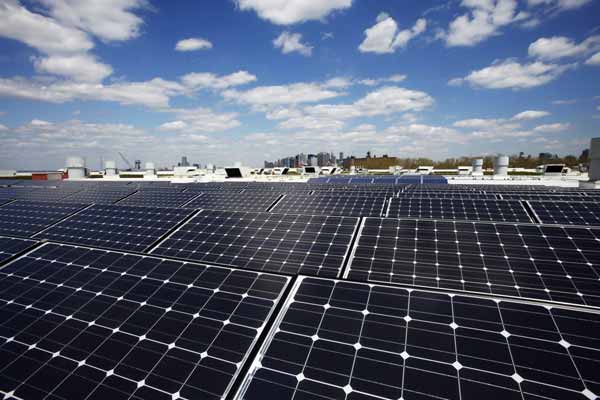
“We have heard from across our districts about the impossible choices that families have had to make because of the utility bill increases they’ve seen from the 2019 rate case,” Felder and his colleagues, including state senator Andrew Gounardes and Brooklyn assemblymembers Emily Gallagher and Robert Carroll wrote. “In the event of these rate increases, many have told us they are unsure if they can continue to afford living in our neighborhoods.”
The PSC has already held public hearings on the proposed rate hike, but, in the letter, lawmakers said the public needs another chance to make their voices heard before a final decision is made — not enough members of the public knew about the rate case back in March 2022.
“While Con Edison is able to pay attorney and lobbyists to fight for their interests, our constituents — working New Yorkers — have not been given an adequate seat at the table,” the missive reads. “We call on you to hold a public hearing immediately to give our constituents the chance to weigh in on a decision that will impact their lives deeply.”
PSC representative James Denn said the agency is “actively considering” the request for more hearings.
“Public participation is a hallmark in all rate cases that come before the PSC,” Denn said. “We have held six hearings thus far and are actively considering the request to hold an additional hearing. The rate request remains under review.”


